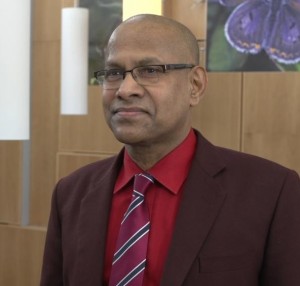An international bioproducts conference returns to Guelph this week for the second time, bringing together industry leaders, government officials and researchers in the growing field.

The International Symposium on Bioplastics, Biocomposites and Biorefining will take place May 31 to June 3 at the Delta Guelph Hotel and Conference Centre. Organized by the University of Guelph’s Bioproducts Discovery and Development Centre (BDDC), the conference will attract hundreds of attendees and speakers and presenters, making it one of the biggest events in bio-based materials and biorefining.
The theme of this year’s event is “Sustainable Bioeconomy to Marketplace,” which reflects the fact that bioproducts are becoming viable alternatives to their petroleum counterparts, said Prof. Amar Mohanty, conference chair and BDDC director.
Speakers and guests will come from the United States, Europe, Africa, South America and Asia.
Worldwide interest in bioproducts reflects their importance and potential, Mohanty said.
“Interest in bioproducts and biobased materials continues to expand and gain momentum due to worldwide concerns about environmental sustainability, record high greenhouse gas emissions and reducing our dependence on nonrenewable fossil fuels.”
Calling bioproducts “the wave of the future,” Mohanty said “challenges remain in terms of their market adoption. This conference will bring together international experts to work together to drive innovation and product commercialization.”
Many U of G researchers, including about 80 students, will participate in the conference. Mohanty said the event will allow Guelph to showcase its research and innovation in bio-based materials and biorefining.
“This setting will offer many networking opportunities to encourage collaborations between international colleagues, and local businesses can promote their messages and products to a multinational audience.”
The BDDC, which opened in 2008, aims to reduce dependency on petroleum-based products in manufacturing and consumer goods by developing renewable, eco-friendly alternatives. Researchers study ways to use soy, wheat, corn and other crops to make everything from car parts and furniture to fuel. They also investigate new crops for use in composite materials.